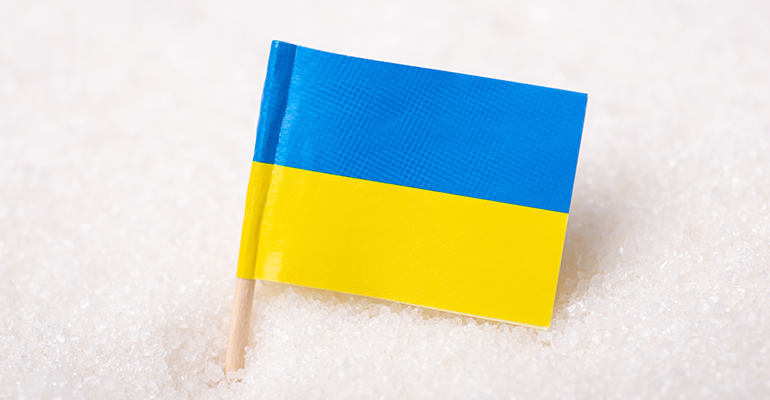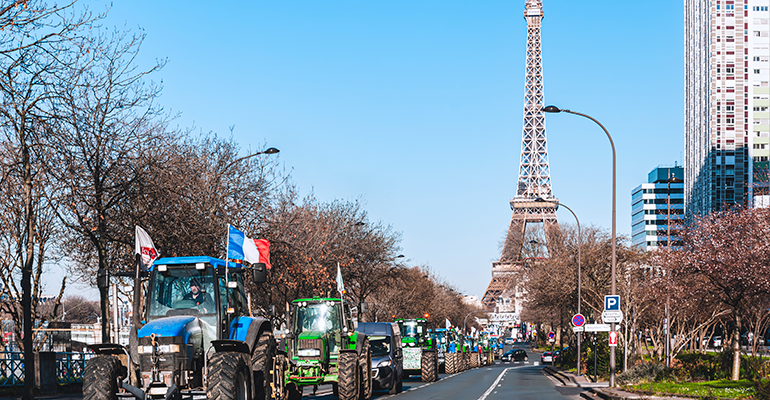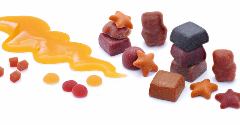News
EU proposes import limits for Ukrainian poultry, egg and sugar to calm protesting farmers
14 Feb 2024The European Commission has proposed measures to limit agricultural imports such as poultry, eggs and sugar from Ukraine in efforts to appease protesting farmers in France and other EU members.
The Commission said last week it would look to renew the suspension of import duties and quotas on exports from Ukraine and Moldovia to the EU for another year, while reinforcing protection for sensitive EU agricultural products.

These Autonomous Trade Measures (ATMs) have been in place since June 2022 in efforts to shore up Ukraine's economy following Russian incursions which have affected shipments taking the Black Sea route.
“The EU must continue to show solidarity with Ukraine and Moldova in the face of Russia’s continuing aggression,” said Valdis Dombrovskis, executive vice president and commissioner for trade.
“This proposal strikes the right balance: we are maintaining our economic support for both countries, while taking EU farmers’ interests and sensitivities fully into account.
“This will achieve the dual objective of helping to keep Ukraine's and Moldova’s economies going, while at the same time having stronger safeguards to prevent market disruptions in the EU.”
Poultry, eggs and sugar imports under control of an ‘emergency brake’
The European Commission added that for sensitive products such as poultry, eggs and sugar, an “emergency brake is foreseen” which would stabilise imports at the average import volumes in 2022 and 2023.
This means that if imports of these products were exceeding those volumes, tariffs would be reimposed to ensure that import volumes do not significantly exceed those of previous years.
The Commission’s proposals come as protests by farmers and truckers intensify in Bulgaria, Hungary, Poland, Romania and Slovakia, who have complained that the farm imports have distorted their markets.
In France, protests have been particularly fierce with French farmers blocking major highways to Paris over the imports from Ukraine but also an ongoing trade deal between the EU and South American bloc Mercosur, that farmers say would introduce unfair competition in sugar, grain and meat.
 pictured: Farmers protesting in France | © iStock/legna69
pictured: Farmers protesting in France | © iStock/legna69
Speaking at a press conference, French President Emmanuel Macron urged the EU to regulate chicken and grain imports from Ukraine and to allow flexibility on some of the bloc's farming rules to help quell anger among French farmers.
President of the EU Commission renews special trade measures and proposes safeguards
In response, President of the EU Commission Ursula von der Leyen said on Twitter: “The EU continues to stand by Ukraine and Moldova.
“Today we renew special trade measures, which are vital to keep UAMD economies running. At the same time, we propose safeguards to cushion the impact of these measures on EU farmers.”
However, in a statement The Committee of European Sugar Users (CIUS) expressed shock to see calls for blocking imports of sugar from Ukraine arguing that freeing up of sugar imports from Ukraine has been vital for the European food industry.
According to the Committee, the EU has a structural sugar deficit for several years now owing to insufficient planting of sugar beet in the EU and excessive restrictions on imports that make it impossible to fill the gap in an economically viable manner.
CIUS: ‘….a shortage of supply in the EU of this vital raw material for strong export industries’
“Shortages have undermined the growth of the EU’s high value add agri-food exports, and thus the European economy,” the CIUS said in a statement.
“Even with the dramatic increase of imports of sugar from Ukraine since the EU lifted restrictions, there is still a shortage of supply in the EU of this vital raw material for strong export industries such as confectionery and fine bakery wares.”
The Brussels-based industry group added that the food industry needs certainty that Ukraine will remain open as a source of supply long term, as alternative sources are so limited.
“This will help to reduce the EU sugar deficit and to provide the EU food industry with capacity and confidence to increase high value add exports, thus contributing to EU economic growth in addition to providing vital economic help to a country that deserves all the support Europe can provide.”
Related news

From fruit to functional solutions: Meet Paradise Fruits at Fi Europe in Paris
13 Nov 2025
Paradise Fruits Solutions and Paradise Fruits Health will showcase their combined expertise in delivering innovative, fruit-based solutions to the food and beverage industry at the upcoming Fi Europe trade show (2-4 December 2025, Paris).
Read more
New UPF standard hoped to offer consumers ‘coherence and clarity’
10 Nov 2025
Ingredients companies are being urged to enter “a new era of partnership and innovation” following the launch of the industry’s first non-UPF verification scheme.
Read more
Penguin and Club bars no longer classed as chocolate
30 Oct 2025
Penguin and Club bars can no longer be classified as chocolate after the pladis-owned McVitie’s brands turned to cheaper alternatives amid the ongoing cocoa crisis.
Read more
Shorter drying time, sweeter success!
30 Oct 2025
Curious about cost-effective, sustainable and delicious candy making? Stefan Wessel reveals how Avebe’s solutions reduce drying time and energy use by up to 50%.
Read more
Agrigum Redefined FIBER
27 Oct 2025
Agrigum has transformed gum acacia into a natural, science-backed fibre that supports gut health, sustainability, and innovation across global food and nutrition applications.
Read more
Amazon Grocery launch aims to balance quality with affordability
22 Oct 2025
Global e-commerce giant Amazon has introduced a new private-label food brand, combining existing Amazon Fresh and Happy Belly products with new everyday items.
Read more
Choose delicious and versatile US peanut ingredients
15 Oct 2025
The US supplies high quality, great tasting peanuts in a wide range of forms, from inshells or whole kernels, through to granulated peanuts, peanut butters, pastes, flours, oils and extract.
Read more
Change at the top for Nestlé as it welcomes new leadership roles
7 Oct 2025
Nestlé has welcomed two new CEOs and a new chairman to its board of directors, marking a period of change at the top for the global company.
Read more
Nactarome’s One Table enhances natural innovation
2 Oct 2025
Nactarome’s One Table vision brings natural flavour, taste, and colour solutions to empower food and beverage brands to meet market challenges while still meeting consumers where they’re at.
Read more
India’s biscuit and cookie consumers want extra indulgence
16 Sep 2025
Premiumisation, health consciousness, and a focus on texture are driving new product developments (NPD) in the Indian biscuit and cookie market, Mintel figures suggest.
Read more